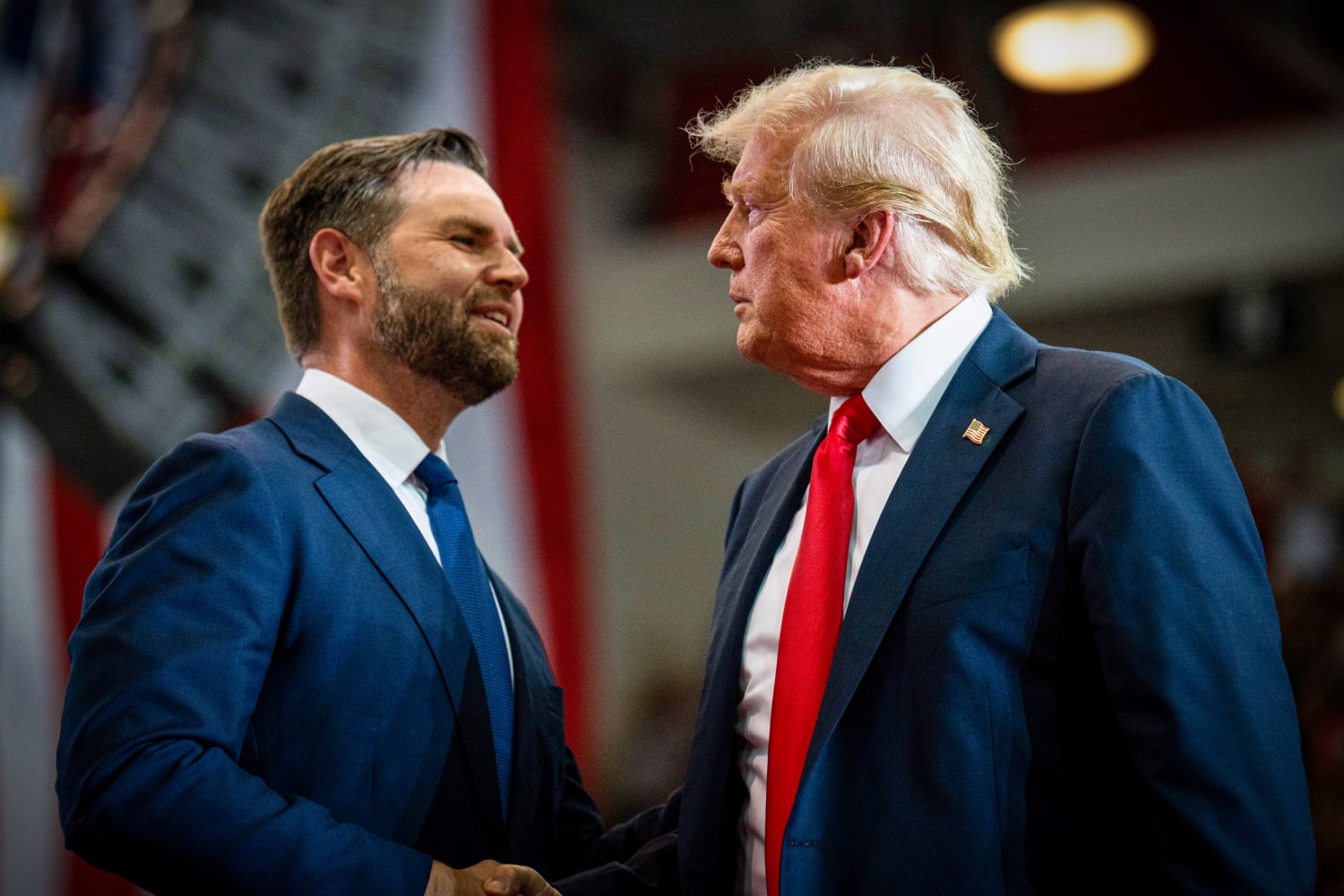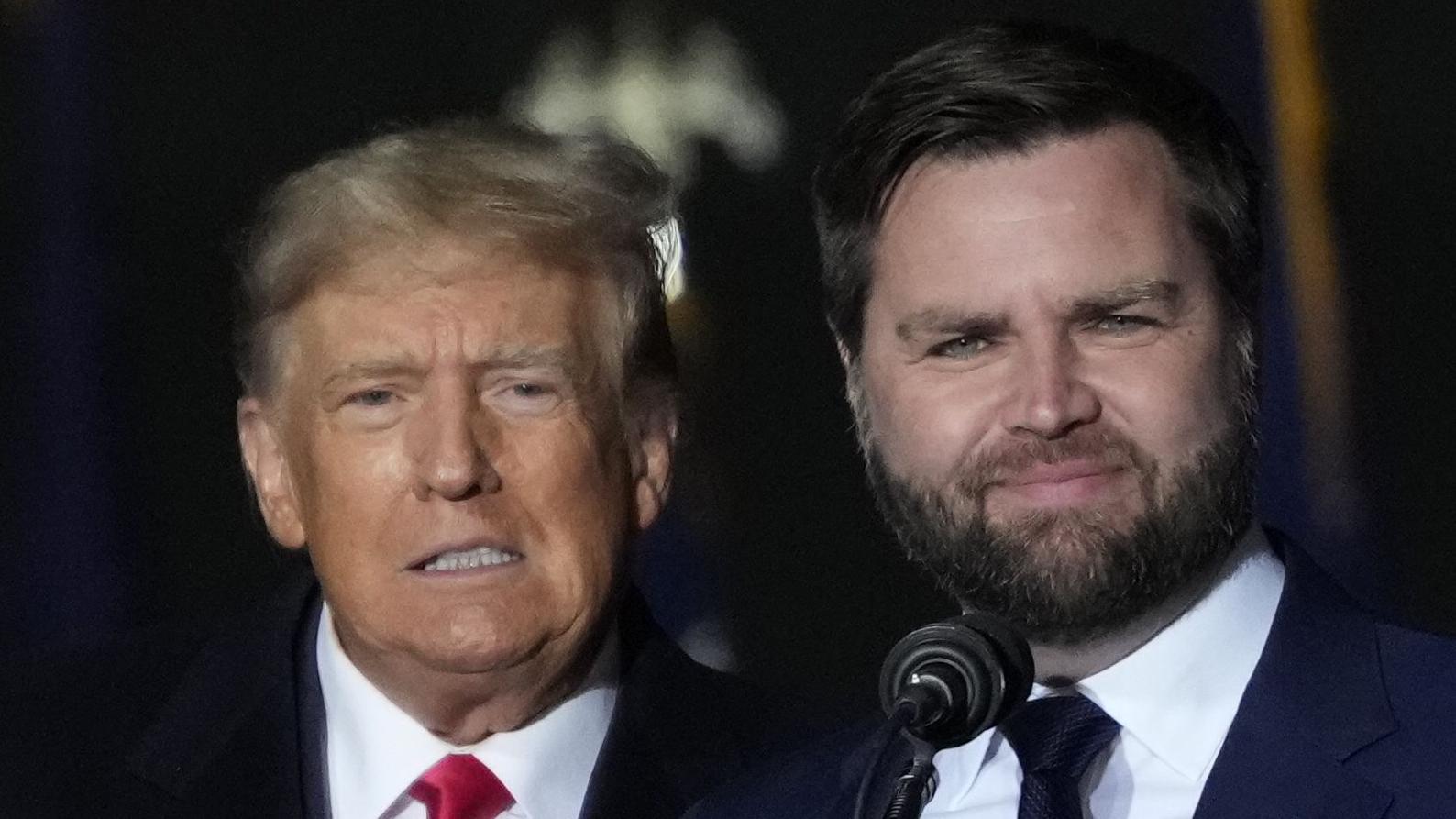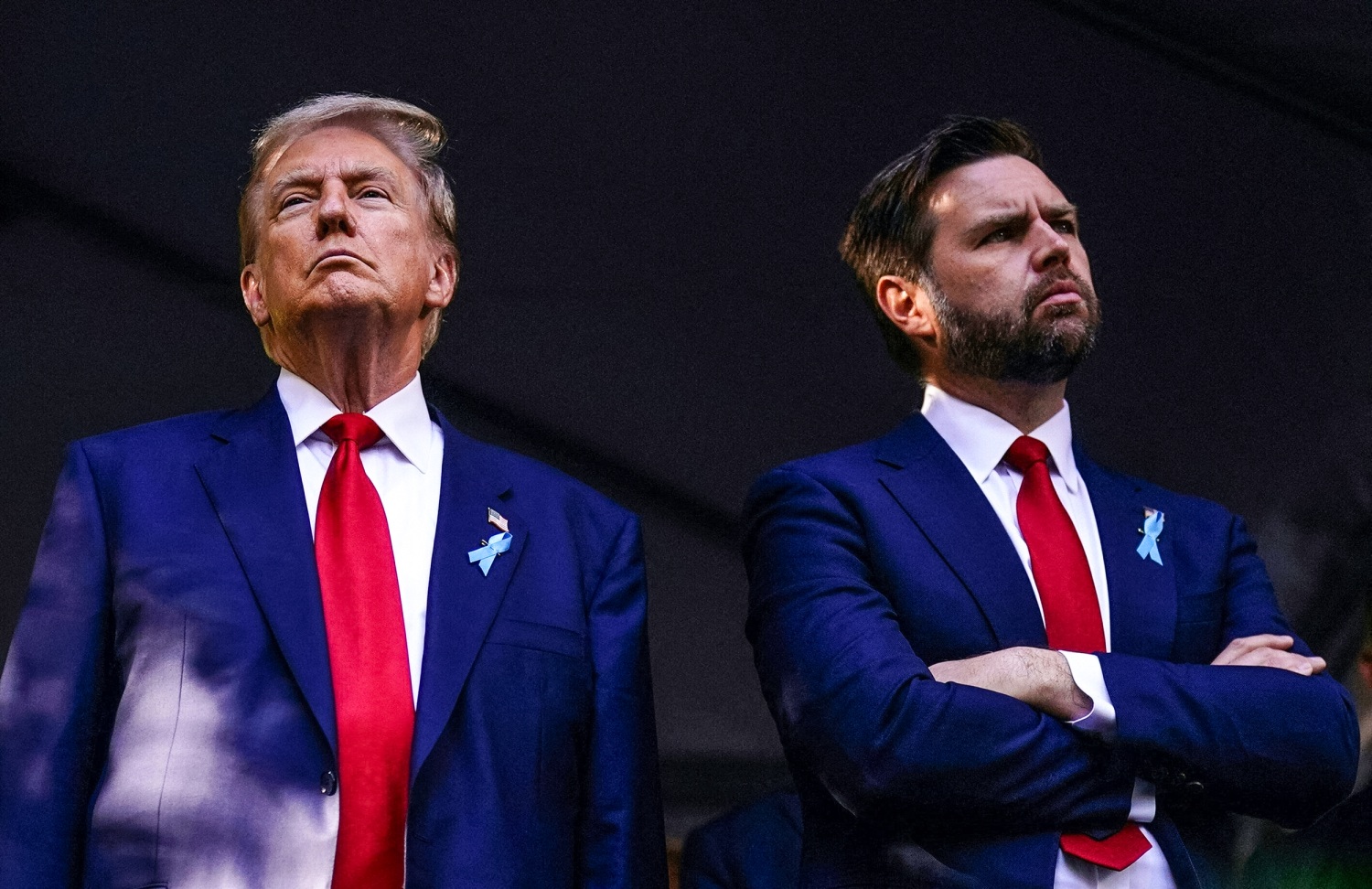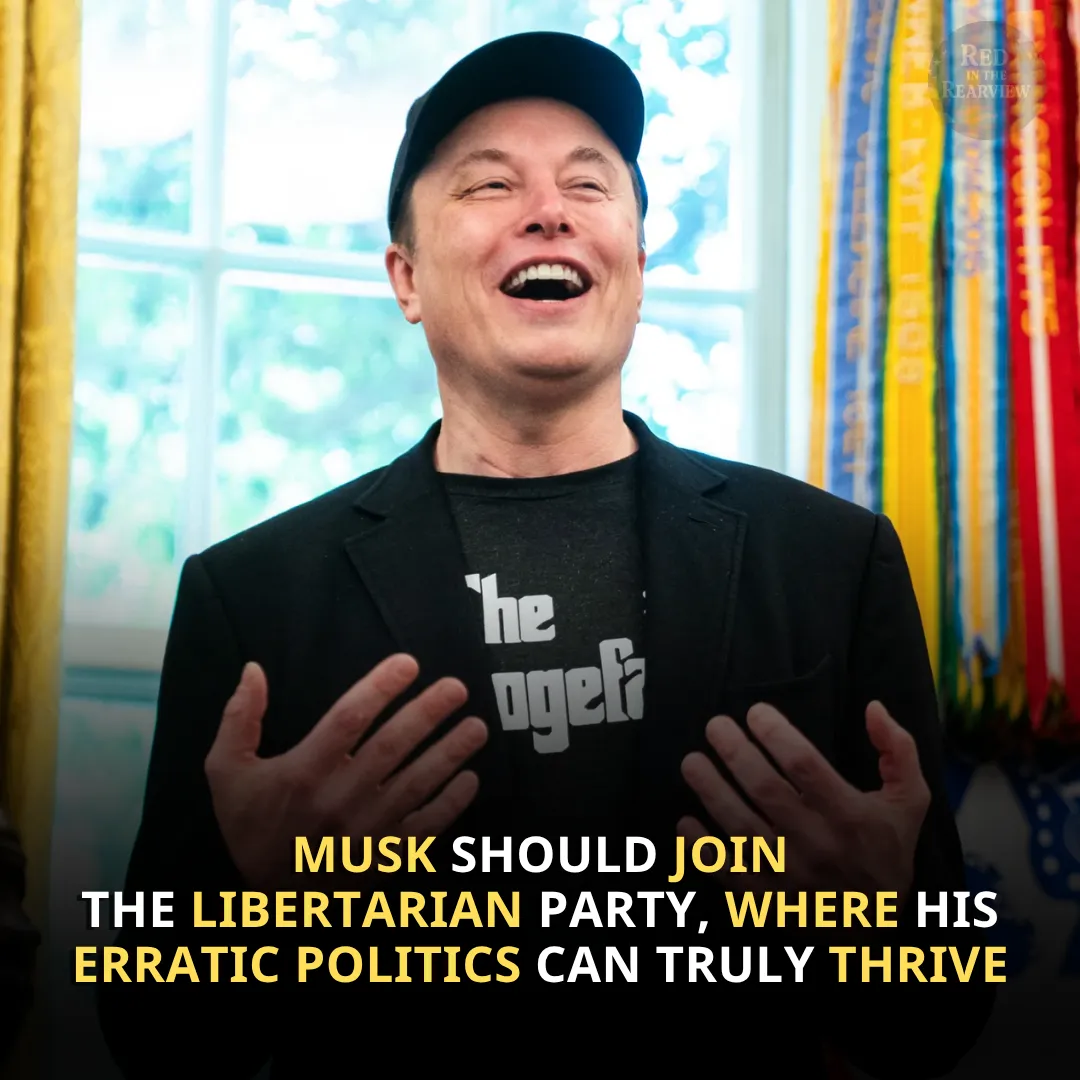
Vice President JD Vance stepped into a political firestorm this week after addressing rising concerns about the so-called “brain drain” in American academia, a term used by critics to describe the supposed exodus of scientific talent from the United States under the Trump administration’s push to reform the research and education sectors.
Vance, speaking in a recent Newsmax interview, pushed back firmly against accusations that President Trump’s policies were destroying scientific innovation, and instead offered a bold case for investing in American talent, rather than relying endlessly on foreign recruitment.
In an era where elite institutions and left-wing pundits often paint the Trump administration as hostile to science, Vance’s response was clear, provocative, and unapologetically nationalist.
But for many Americans tired of hearing that the country must outsource its intellectual engine to remain competitive, his comments struck a deeper chord — one rooted in pride and self-determination.
“First of all, I’ve heard a lot of the criticisms, the fear that we’re going to have a brain drain,” Vance said in the interview. “If you go back to the ‘50s and ‘60s, the American space program — the program that was the first to put a human being on the surface of the moon — was built by American citizens.
Some German and Jewish scientists who had come over during World War II, yes, but mostly by Americans who built an incredible space program with American talent.”
Vance continued by rejecting what he framed as a defeatist mindset among critics who insist America needs to import large numbers of foreign scientists in order to remain globally competitive.
“This idea that American citizens don’t have the talent to do great things, that you have to import a foreign class of servants and professors to do these things, I just reject it,” he said. “I just think we should invest in our own people. We can do a lot of good.”

Predictably, the comments drew immediate condemnation from media outlets and academic commentators, who accused Vance of xenophobia and ignorance. But supporters argue his message is rooted not in hostility, but in a long-overdue rebalancing of national priorities.
After decades of deference to global talent pipelines and elite academic bureaucracies, Vance and the Trump administration are calling for a new vision — one where American scientific institutions serve American interests first.
It is true that Trump’s second-term agenda has included a crackdown on the overuse of student visa programs, a re-evaluation of government-funded research grants, and a renewed focus on ensuring that federally supported science benefits American workers and taxpayers.
Critics have rushed to label this as “anti-science.” But others view it as common sense.
Vance’s argument is not that immigration or foreign expertise has no place in American science — far from it. He acknowledges historical examples like the German scientists who arrived after World War II under Operation Paperclip.
But he challenges the assumption that America’s future innovation must rely on foreign nationals indefinitely. His call is for a renewed investment in the talent of American-born students, many of whom have been locked out of opportunities by bloated bureaucracies and discriminatory policies that prioritize globalism over merit.
Indeed, Vance doubled down on that point, referencing claims that many universities now discriminate against white and Asian students in the name of “equity” and “diversity.”

While the media was quick to condemn him for this, it’s a conversation that’s happening everywhere, from admissions offices to courtrooms.
The recent Supreme Court ruling dismantling race-based affirmative action policies only reinforced the concern that American academia had drifted too far into ideological activism, abandoning fairness and merit in the process.
Meanwhile, stories of young scientists growing disillusioned with the system are hardly rare — but their reasons for dissatisfaction are more complex than many in the press would admit.
A recent report from the Boston Globe cited students frustrated by declining research funds and limited job prospects. But it failed to consider the broader picture: that decades of mismanagement, unsustainable reliance on international labor, and bloated university administrations have brought the current crisis to a head.
The Trump administration’s efforts to trim student visa programs and refocus federal research dollars on American-led projects are not arbitrary.
They are strategic. President Trump and Vice President Vance are attempting to reverse a trend where American students — especially those outside elite university circles — are increasingly priced out of research careers, while their foreign counterparts receive generous subsidies and preferential hiring.
Moreover, the so-called “brain drain” narrative assumes that American scientists will flock abroad rather than continue their work at home. But this fear largely rests on conjecture.
Despite the challenges, the United States remains the global leader in research output, innovation, and technological infrastructure.

And if the Trump administration succeeds in redirecting funding toward homegrown talent and incentivizing private-sector innovation, many believe that scientific excellence can thrive — without being dependent on open-border policies or the goodwill of globalist academic networks.
There’s also a geopolitical dimension. As Vance noted, it’s increasingly untenable to ignore the national security risks of relying on foreign students and researchers, especially from countries like China.
Recent espionage scandals and the theft of sensitive research have raised red flags in Washington. The Biden administration largely turned a blind eye, but the Trump White House is determined not to repeat that mistake.
The vice president's focus on national self-reliance in science should be seen in context. He is not disparaging the value of science — he’s demanding that it be accountable.
That it serve national interests. That it stop becoming a playground for ideological activists and instead return to its role as a driver of technological and economic strength. He is also challenging the notion that skepticism of academia equals rejection of science.
For too long, left-wing institutions have cloaked themselves in the prestige of “science” while engaging in policies and practices that have little to do with empirical rigor and everything to do with politics.
Universities promote activism over excellence. Research departments chase trendy causes over meaningful breakthroughs. Scientific dissent is often punished, not debated. In this environment, questioning the status quo is not anti-science — it is pro-reform.
And Vance is not alone. Across the country, more Americans are beginning to echo his concerns. Parents frustrated with their children’s lack of academic opportunities.

Young scientists shut out of grant funding because of ideological bias. Entrepreneurs watching federal dollars flow to questionable overseas collaborations. The movement to reclaim American science is not a fringe cause. It is becoming mainstream.
In fact, many foreign scientists who came to America for its promise of meritocracy and opportunity now express concern that the system is faltering. Some privately admit that U.S. universities have become more focused on appearances than excellence.
In this light, Vance’s call to invest in “our own people” is not exclusionary — it’s aspirational.
Critics will undoubtedly continue to misrepresent Vance’s words, painting them as anti-immigrant or anti-intellectual. But the reality is more nuanced. He is asking the country to believe in itself again.
To stop outsourcing greatness. To stop assuming that genius can only be imported. And to stop allowing a handful of elite institutions to decide who gets to innovate and who gets left behind.
As Trump continues his push to overhaul the American research landscape, Vance’s comments serve as both a rallying cry and a challenge. The path forward may require tough choices — prioritizing certain programs over others, challenging entrenched interests, and refusing to bow to globalist dogma.

But for those who believe that America can — and should — lead the world through its own talent, the vice president’s message is not ignorance. It is inspiration. And it may be exactly what the country needs to hear.



